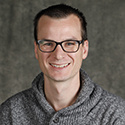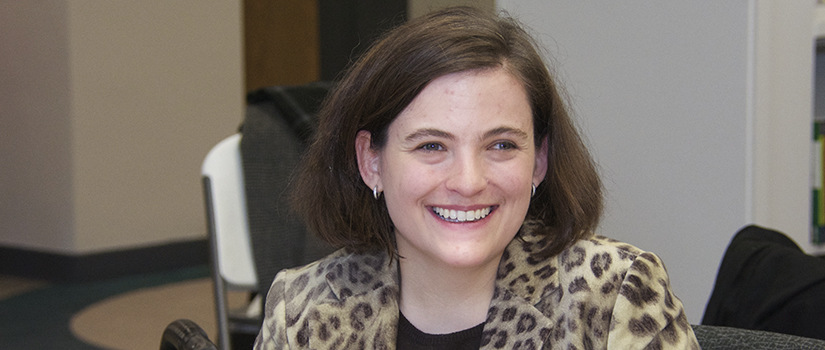Posted October 8, 2019
By Christopher Lorensen
Clayton A. Copeland, a faculty member and director of the Laboratory for Leadership in Equity And Diversity in the School of Library and Information Science, has personal and professional experience
with equity of access and inclusion in libraries.
Copeland believes that everyone struggles in some way, but she was raised with the
understanding that for some, those challenges are simply more visible than others.
Everyone, she says, has ability within themselves.
Growing up, Copeland frequently found herself in the library. There she found possibilities
and inspiration from her K-12 librarians, SLIS alumni Ellen Ramsey and Vicky Culbertson.
“They created an environment that was welcoming, embracing and where every child could
find answers,” she says. “I was inspired to join this profession by them because I
knew the tremendous difference that they had made not only for me but for all of the
children who were in the library.”
Improving the lives of underserved populations is what drives Copeland’s work within
SLIS. Her research and teaching style focus heavily on universal access and design
for everyone, the concept that the burden of accessibility falls on designers, not
users.
When she started studying as an undergraduate at the University of South Carolina,
her focus was on the social constructions that surround disabilities, looking at why
some challenges are considered a disability compared to others. The example that she
was first given was the idea of glasses and whether the people who wear them have
disabilities. Socially, she says, the answer is no.
“When something has been appropriately accommodated in society, we don't think of
those challenges as being a disability anymore,” she says.
To better understand this concept and the challenges people face, Copeland goes to
the library, where it all began for her, to learn the lived experiences of people
who self-identify as differently able versus those who self-identify as typically
able.
“While research can be very well-intentioned, until it includes the voices of folks
who have those lived experiences it’s not a complete picture,” she says. “As we work
to make accommodations, ask those who know their needs best of all.”
MLIS student Kathy Barry says that some library patrons may have post-traumatic stress
disorder, be illiterate, have high-functioning autism or just be having a bad day.
Copeland’s personal nature and focus on inclusion, she says, has helped her understand
how to assist these people.
“Theory is great, and it’s important,” Barry says. “But you also need the boots on
the ground.”
Among the projects Copeland is a part of is a partnership with the university’s School
of Medicine to conduct research on libraries’ roles in providing disaster support.
Whether that’s about accessible shelters or where to locate medications, the information
needs to be available in accessible formats.
She has also helped start the Laboratory for Leadership in Equity And Diversity at
SLIS. LLEAD focuses on universal design in digital and built environments along with
skill development and job training for those who self-identify as differently able.
As someone who got her start in the library, Copeland is working with associate professor
Kim Thompson to encourage the inclusion of people with disabilities in the library
workforce, not just as patrons. Already, the two have led presentations and webinars
for employers on using language in job postings that is inviting to diverse applicants.
This diversity, Copeland believes, will bring new perspectives to library staff.
Mike Corbo, a recent MLIS alumnus and former office coordinator for SLIS, now works
as a librarian for the Charleston County Public Library. He says Copeland’s lessons
have helped him to better understand patrons.
“Don’t just think that because a patron is there, that they are able to easily access
everything,” he says. “She really hammered that home right away.”
One of the first things Corbo checked when he started his new job was whether the
library had computers set up for people who are differently able, something Copeland
emphasizes in her technology class.
“The assignments aren’t easy,” Corbo says. “But they’re also assignments that you
actually use in the real world.”
Copeland enjoys teaching and learning about her students. She incorporates service
learning into her classes and pushes students to apply lessons from class within their
communities.
“I just really love seeing the diverse perspectives and seeing people on their learning
journeys — it’s a real privilege to be a part of that,” she says. “They’re learning
about how principles of universal access and design make differences not only for
specified demographics, but for everyone.”

Christopher Lorensen
Christopher Lorensen is a mass communications major in the College of Information
and Communications and a Dean's Communication Fellow. As a Navy veteran with a background
in nuclear chemistry, Lorensen focuses on communication of science and technology.

